- 28
- 2月
What materials can be used in a block making machine?
RAYTONE. is a leading manufacturer and supplier of high-quality block making machines in China. we have become a trusted name in providing innovative and durable block making machines to fulfill the diverse needs of our customers. Our company is committed to providing superior quality products and excellent customer service to our clients worldwide.
we offer a wide range of block making machines including automatic, semi-automatic, and manual machines. Our machines are designed to produce different types of blocks such as concrete blocks, hollow blocks, solid blocks, paving blocks, and more. We use the latest technology and top-grade materials to ensure that our machines are efficient, reliable, and cost-effective. Our block making machines are easy to operate and require minimal maintenance. They are equipped with advanced features including automatic material feeding, hydraulic pressure control, and vibration settings, making the block production process faster and more efficient. Our machines are also energy-saving, eco-friendly, and have a long lifespan.
Our team of experienced engineers and technicians work tirelessly to continuously improve the design and functionality of our machines. We also offer customized solutions to meet the specific needs and requirements of our customers. Our machines are widely used in construction projects, as well as for producing blocks for road paving, landscaping, and other applications.
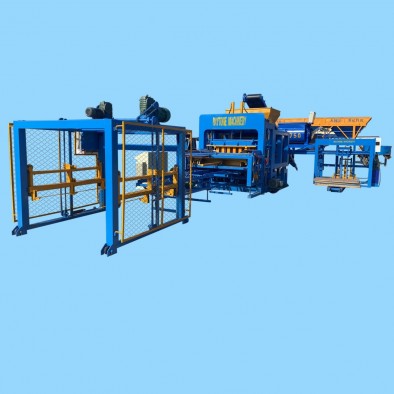
Our block making machines are the perfect solution for your construction needs. Durable and reliable, these machines guarantee consistent and high-quality results every time. Made with top-quality materials and advanced technology, they are designed to withstand heavy use and harsh conditions, making them the dependable choice for all your block making needs. Whether you’re building homes, commercial spaces or roads, our machines will provide you with efficient and precise results, ensuring your projects are completed on time and to the highest standards. Trust in our block making machines for a solid and reliable foundation for your construction projects.
The revolutionary Block Machine is a groundbreaking solution that combines efficiency and automation to completely transform traditional block manufacturing processes. With its advanced technological capabilities, this machine greatly reduces the manual labor and time required for block production. Its automated features ensure a precise and consistent production process, resulting in high-quality blocks every time. Whether used for construction, landscaping, or other applications, the Block Machine delivers unparalleled efficiency and reliability. Say goodbye to labor-intensive and time-consuming methods – the future of block manufacturing has arrived.
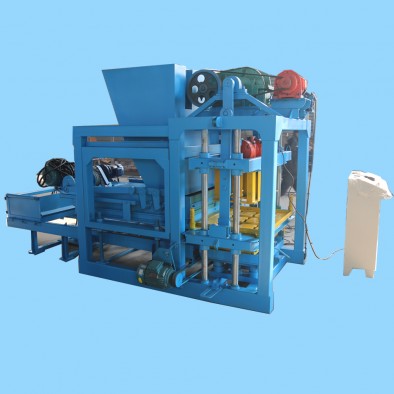
Block making machine, also known as brick making machine, is a device that produces concrete blocks or bricks in various shapes and sizes. It plays an important role in the construction industry by providing a cost-effective and efficient solution for producing building materials. With the advancement of technology and the increasing demand for sustainable building materials, block making machines have evolved to become more versatile and eco-friendly. In this article, we will delve deeper into the functionalities and benefits of block making machines and explore how they have revolutionized the way we build structures.
2.Can a block making machine be operated by a single person?
3.How does the block making machine ensure uniformity in block sizes?
4.Can recycled materials be used in a block making machine?
5.Can a block making machine produce colored blocks?
6.Can a block making machine create different types of blocks?
7.How does the curing process work in a block making machine?
8.What safety measures should be taken while operating a block making machine?
9.Can a block making machine be used for large-scale production?
10.What is the cost of purchasing and operating a block making machine?
11.What safety features are built into the block making machine?
1.What materials can be used in a block making machine?
1. Concrete: This is the most commonly used material in block making machines. It is a mixture of cement, sand, gravel, and water that hardens into a strong and durable material.
2. Fly ash: This is a byproduct of coal combustion and is often used as a substitute for cement in block making. It is a cost-effective and environmentally friendly option.
3. Clay: Clay blocks are made from a mixture of clay and water, which is then compressed and fired in a kiln. They are known for their strength and durability.
4. Sand: Sand is often used as a filler material in block making. It helps to reduce the cost of production and can improve the thermal and acoustic properties of the blocks.
5. Lime: Lime is a binding agent that is often used in combination with other materials such as sand and fly ash to make blocks. It helps to improve the strength and durability of the blocks.
6. Gypsum: Gypsum is a mineral that is used as a binding agent in block making. It helps to improve the workability and strength of the blocks.
7. Plastic: Some block making machines can also use plastic as a raw material. Recycled plastic can be melted and molded into blocks, making it an environmentally friendly option.
8. Wood: In some cases, wood chips or sawdust can be used as a filler material in block making. This is a cost-effective option and can also improve the insulation properties of the blocks.
9. Glass: Crushed glass can be used as a filler material in block making. It is a sustainable option and can also improve the thermal and acoustic properties of the blocks.
10. Rubber: Some block making machines can also use rubber as a raw material. Recycled rubber can be mixed with other materials to make durable and flexible blocks.
2.Can a block making machine be operated by a single person?
Yes, a block making machine can be operated by a single person. However, the efficiency and speed of production may be affected compared to having multiple people operating the machine. It also depends on the size and complexity of the machine and the type of blocks being produced. Some machines may require more than one person to operate effectively.
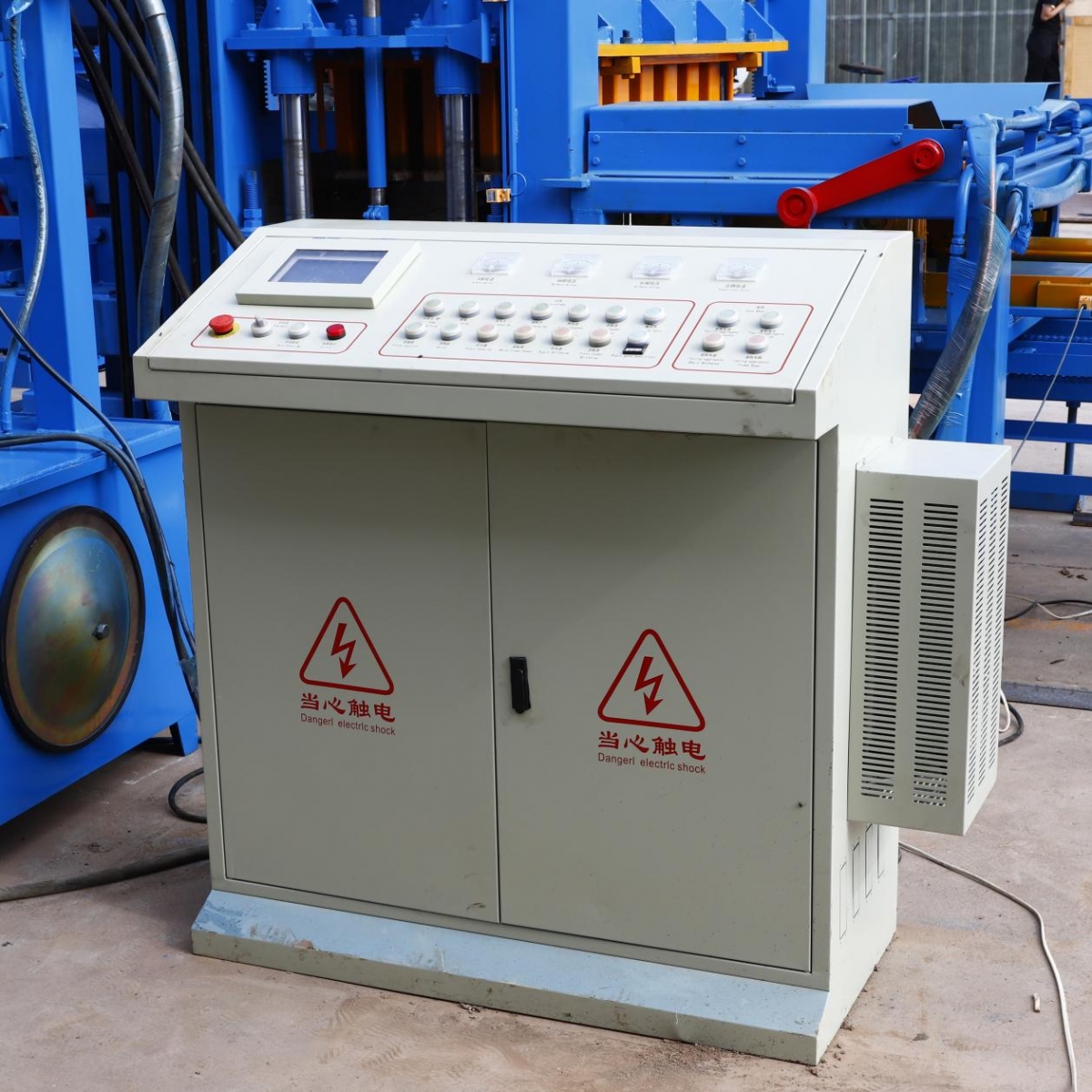
3.How does the block making machine ensure uniformity in block sizes?
1. Precise Mould Design: The block making machine is designed with precision to ensure that the moulds used for making blocks are of the same size and shape. This ensures that all the blocks produced are uniform in size.
2. Consistent Pressure: The machine applies consistent pressure on the raw materials used for making blocks. This ensures that the blocks are compacted evenly, resulting in uniform size and density.
3. Vibration System: The block making machine is equipped with a vibration system that helps to evenly distribute the raw materials in the mould. This ensures that the blocks are of the same size and density.
4. Accurate Feeding System: The machine has an accurate feeding system that ensures the right amount of raw materials is fed into the mould. This helps to avoid variations in block sizes.
5. Quality Control: Most block making machines have a quality control system that checks the size and shape of the blocks produced. If any variations are detected, the machine automatically adjusts to ensure uniformity.
6. Regular Maintenance: Regular maintenance of the machine is essential to ensure that all its components are functioning properly. This helps to avoid any issues that may affect the uniformity of block sizes.
7. Skilled Operators: Skilled operators are trained to operate the block making machine and ensure that all the processes are carried out correctly. This helps to maintain uniformity in block sizes.
8. Standardized Raw Materials: The use of standardized raw materials, such as cement, sand, and aggregates, also contributes to the uniformity of block sizes. This ensures that the blocks produced have the same strength and density.
4.Can recycled materials be used in a block making machine?
Yes, recycled materials can be used in a block making machine. Many block making machines have the capability to use a variety of materials, including recycled materials such as crushed concrete, fly ash, and recycled plastic. These materials can be mixed with cement and other additives to create strong and durable blocks. Using recycled materials in block making can also help reduce waste and promote sustainability. However, it is important to ensure that the recycled materials are clean and free from contaminants to ensure the quality of the blocks.
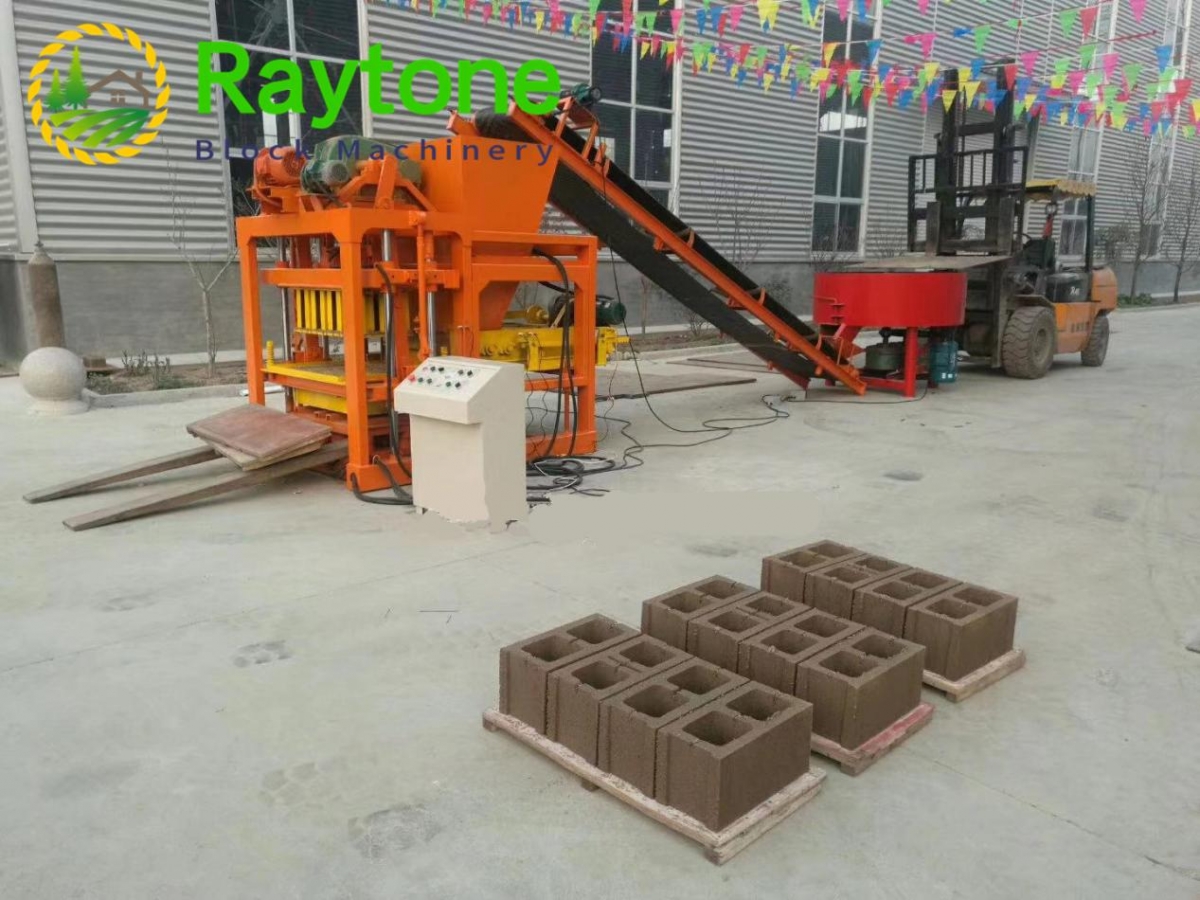
5.Can a block making machine produce colored blocks?
Yes, a block making machine can produce colored blocks by adding pigments or dyes to the concrete mixture before it is poured into the machine. The machine will then mold and compress the colored concrete mixture into blocks of the desired shape and size.
6.Can a block making machine create different types of blocks?
Yes, a block making machine can create different types of blocks by changing the mold or die used in the machine. Different molds can be used to create blocks of different shapes, sizes, and designs. Some common types of blocks that can be created using a block making machine include concrete blocks, interlocking blocks, paving blocks, hollow blocks, and solid blocks. The versatility of block making machines allows for the production of a wide range of blocks to meet various construction needs.
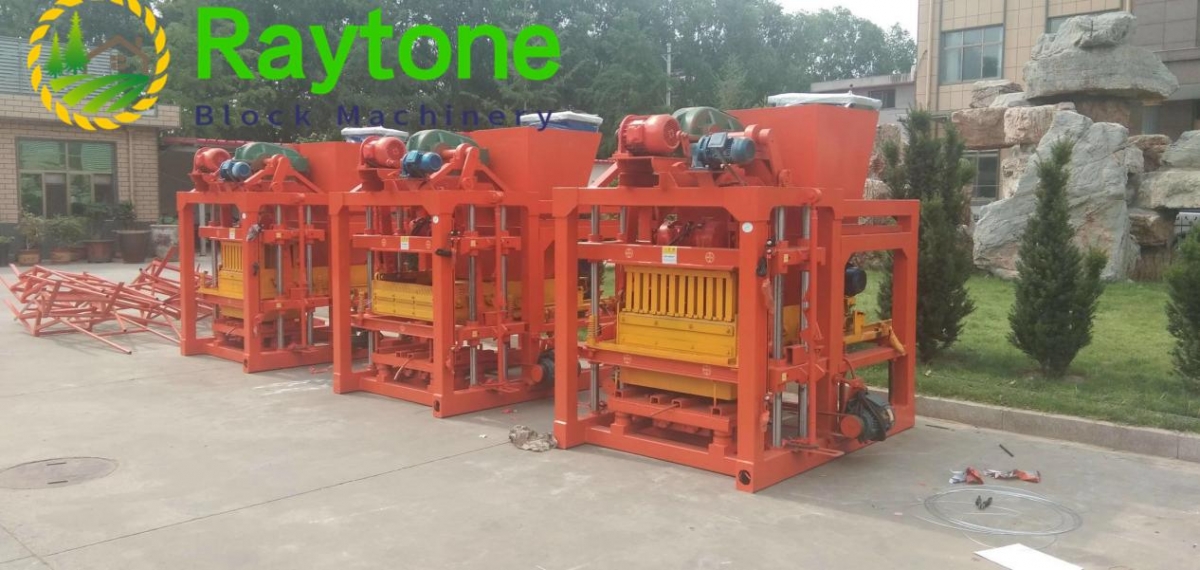
7.How does the curing process work in a block making machine?
The curing process in a block making machine involves the use of heat and moisture to harden and strengthen the concrete blocks. This process is essential for ensuring that the blocks have the necessary strength and durability to withstand the weight and pressure they will be subjected to in construction projects.
The curing process typically begins after the blocks have been molded and compacted in the block making machine. The blocks are then removed from the machine and placed on a curing rack or pallet, which is then transferred to a curing chamber.
In the curing chamber, the blocks are exposed to high humidity and temperature conditions, usually around 80-90% humidity and 60-80 degrees Celsius. This environment is maintained for a specific period, usually 24-48 hours, to allow the blocks to absorb moisture and heat, which helps in the chemical reaction that causes the concrete to harden.
The curing process can also be accelerated by using steam or hot water to increase the temperature and humidity levels in the curing chamber. This method is often used in large-scale block production facilities to speed up the curing process and increase production efficiency.
After the blocks have been cured, they are removed from the curing chamber and allowed to cool down before being stacked and stored for further curing. The total curing time for concrete blocks can vary depending on factors such as the type of concrete mix used, ambient temperature, and humidity levels.
In summary, the curing process in a block making machine is a crucial step in the production of high-quality concrete blocks. It ensures that the blocks have the necessary strength and durability to withstand the rigors of construction and provides a consistent and uniform product.
8.What safety measures should be taken while operating a block making machine?
1. Wear appropriate personal protective equipment (PPE) such as safety glasses, gloves, and steel-toed boots.
2. Familiarize yourself with the machine’s operating manual and follow all safety instructions.
3. Ensure that the machine is properly grounded and all electrical connections are secure.
4. Keep the work area clean and free of clutter to prevent tripping hazards.
5. Do not wear loose clothing or jewelry that could get caught in the machine.
6. Never operate the machine if you are fatigued or under the influence of drugs or alcohol.
7. Keep hands and fingers away from moving parts and always use tools or push sticks to handle materials.
8. Do not attempt to make adjustments or repairs while the machine is running.
9. Use a lockout/tagout system to prevent accidental startup or movement of the machine.
10. Regularly inspect the machine for any signs of wear or damage and perform maintenance as recommended by the manufacturer.
11. Do not overload the machine with materials beyond its capacity.
12. Keep a fire extinguisher nearby in case of emergencies.
13. If the machine becomes jammed or stuck, turn it off and unplug it before attempting to clear the blockage.
14. Always have a first aid kit on hand and know how to use it in case of injuries.
15. Train all operators on proper machine operation and safety procedures.
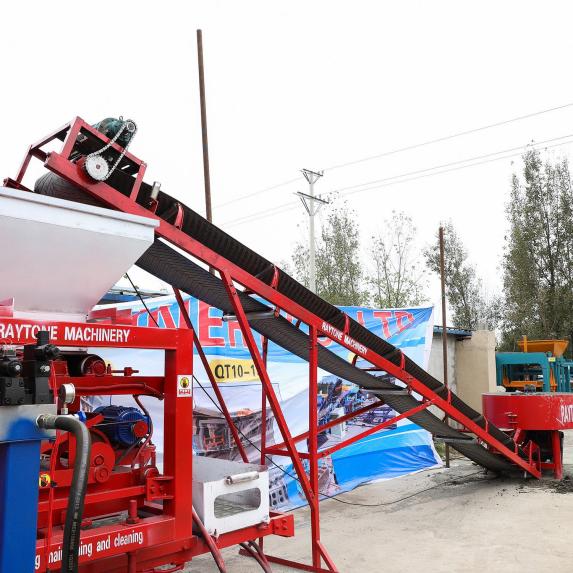
9.Can a block making machine be used for large-scale production?
Yes, a block making machine can be used for large-scale production. These machines are designed to produce a high volume of blocks in a short amount of time, making them ideal for large-scale production. They are also highly efficient and can produce consistent and high-quality blocks, making them a cost-effective option for large-scale production. Additionally, many block making machines can be customized to meet the specific needs and requirements of a large-scale production operation.
10.What is the cost of purchasing and operating a block making machine?
The cost of purchasing and operating a block making machine can vary depending on factors such as the type and size of the machine, the brand, and the location of purchase. Generally, a basic manual block making machine can cost anywhere from $1000 to $5000, while a semi-automatic or fully automatic machine can cost anywhere from $5000 to $20,000 or more.
In addition to the initial purchase cost, there are also operating costs to consider. These can include the cost of raw materials such as cement, sand, and gravel, as well as the cost of electricity, maintenance, and labor. The exact cost of operating a block making machine will depend on the production volume and efficiency of the machine.
It is important to also factor in the cost of transportation and installation of the machine, as well as any additional accessories or tools that may be needed for operation.
Overall, the cost of purchasing and operating a block making machine can range from a few thousand dollars to tens of thousands of dollars, depending on the specific machine and production needs. It is important to carefully research and compare different options to find the best fit for your budget and production requirements.
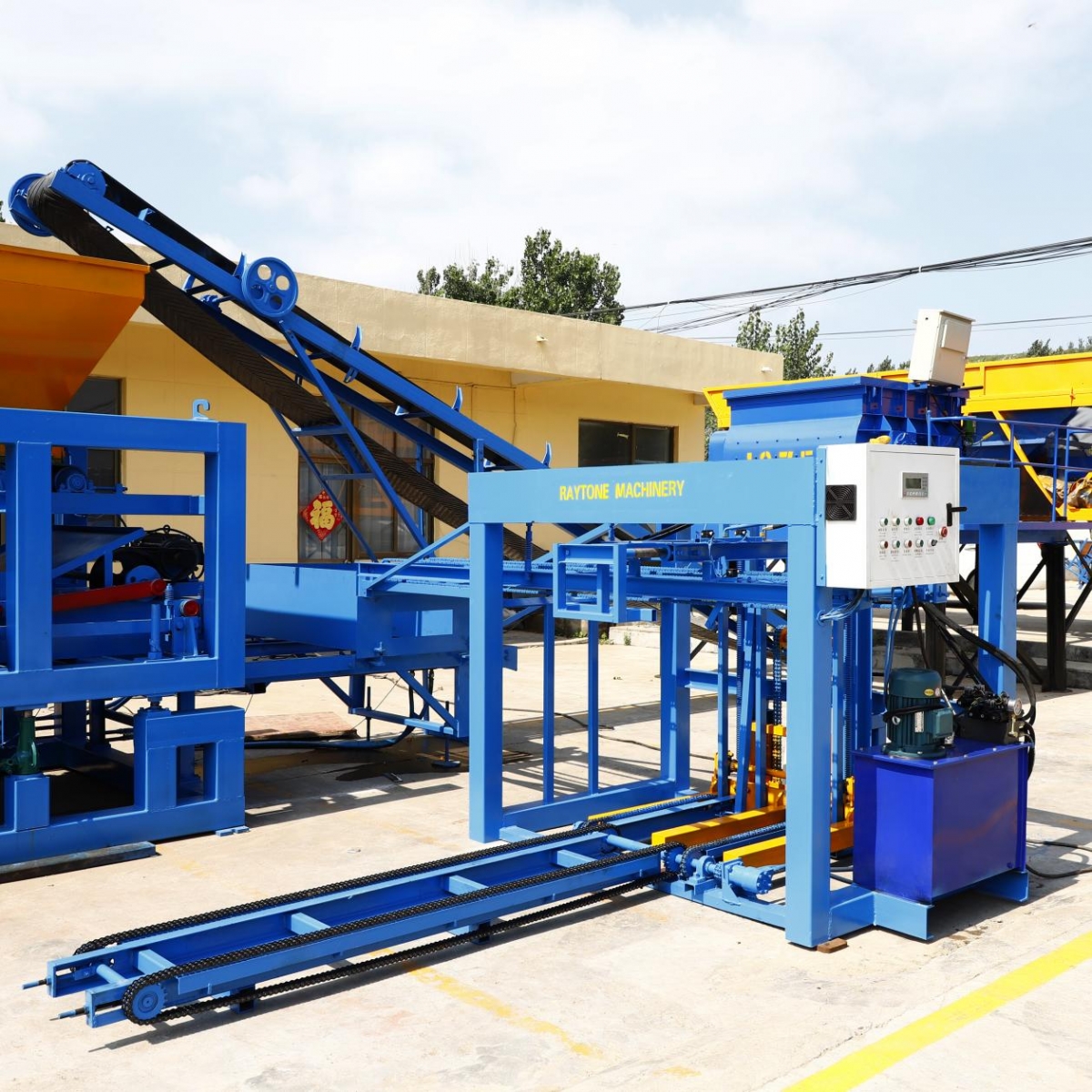
11.What safety features are built into the block making machine?
1. Emergency stop button: This button can be pressed to immediately stop the machine in case of any emergency or malfunction.
2. Safety guards: The machine is equipped with safety guards to prevent any accidental contact with moving parts.
3. Interlocking system: The machine has an interlocking system that prevents the operator from accessing the moving parts while the machine is in operation.
4. Safety sensors: These sensors detect any abnormal movement or pressure and immediately stop the machine to prevent accidents.
5. Overload protection: The machine is equipped with overload protection to prevent damage to the motor or other components in case of excessive load.
6. Safety switches: The machine has safety switches that prevent the machine from operating if the doors or covers are not properly closed.
7. Emergency backup power: In case of power failure, the machine has an emergency backup power system to prevent any accidents or damage to the machine.
8. Warning signs and labels: The machine is labeled with warning signs and labels to remind the operator of potential hazards and safety precautions.
9. Training and manuals: The manufacturer provides training and manuals to ensure that the operator is aware of all safety procedures and precautions while operating the machine.
10. Compliance with safety standards: The machine is designed and manufactured in compliance with international safety standards to ensure the highest level of safety for the operator.
